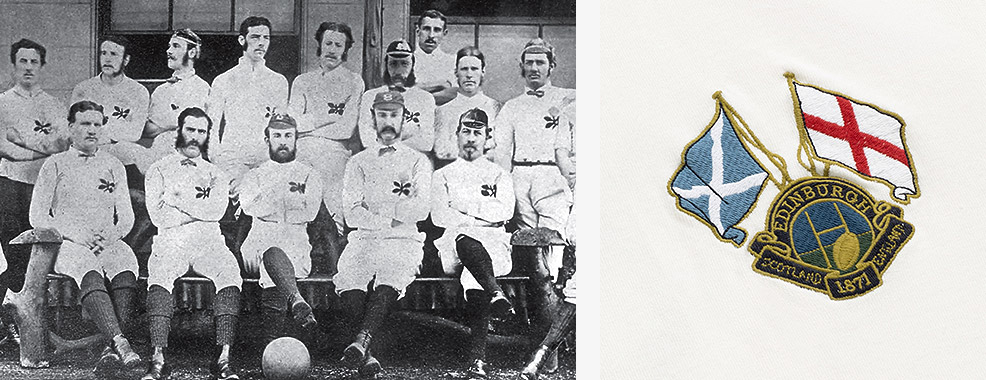



In a few words, our 100% Italian leather sneakers are designed in France and manufactured in Portugal in a factory specialized in high-end shoe brands.




Rugby polo
Machine washable at 30°C inside out, wash with like colours, risk of disgorging, gentle ironing, machine drying not recommended.
Free delivery depending on your country.
Articles can be returned within 30 days.
Express delivery available.

The game was played with 20 players on each team and two 50-minute halves. In Edinburgh at Raeburn Stadium, on March 27, 1871, the English lost to the Scottish team. The Scottish players played in blue with a round neck shirt, the thistle embroidered on the heart. The English players wore the rose, also embroidered, but on a white shirt with a broken collar. A few years later, the Calcutta Cup was created and became the oldest trophy in the history of rugby. The Calcutta Cup, made from melted silver rupees, is the trophy awarded to the winner of the annual match between England and Scotland.
Our production is located n France, Portugal, Italy and Turkey.
We worked hard to develop high quality products: the design, the cut, the stitch, the colours... Attached to authenticity that lays deep in the brand DNA, we indicate the place where our products are manufactured, France or Europe.

Vintage rugby Jersey
| Taille | Quantité |
| S | 1 |
| M | 4 |
| L | 5 |
| XL | 3 |
| XXL | 2 |

Rugby polo
 Retour
Retour